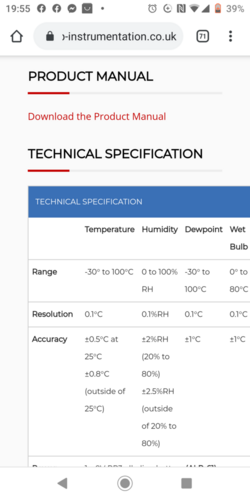Pickle-cham
Chameleon Enthusiast
Ive seen 2 methods to calibrate could i use them to two step calibrate a cheap digital hydrometer/thermometers too see how out they are.
1st method seal salt in bag in jar add amount of water and wait 6 hours 75%
2nd way in distilled water or ro water should have 100%
Is there others for maybe 3 step calibration?
1st method seal salt in bag in jar add amount of water and wait 6 hours 75%
2nd way in distilled water or ro water should have 100%
Is there others for maybe 3 step calibration?


